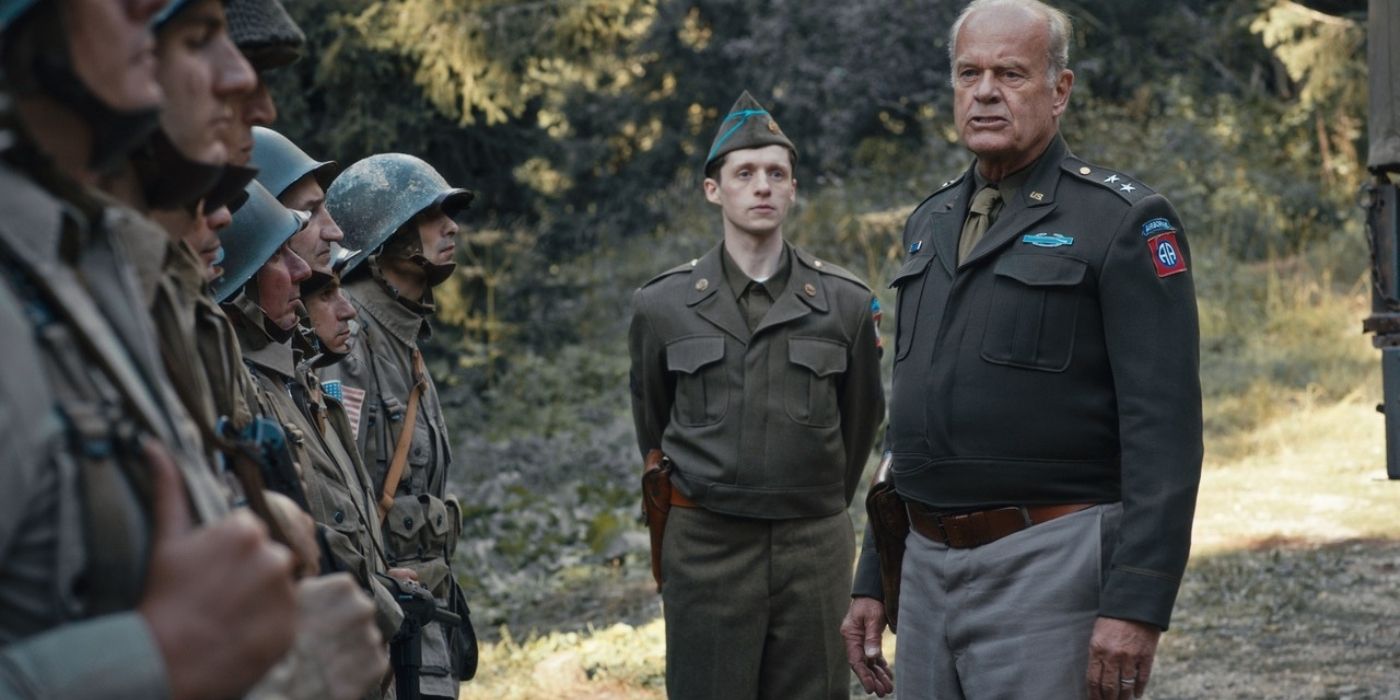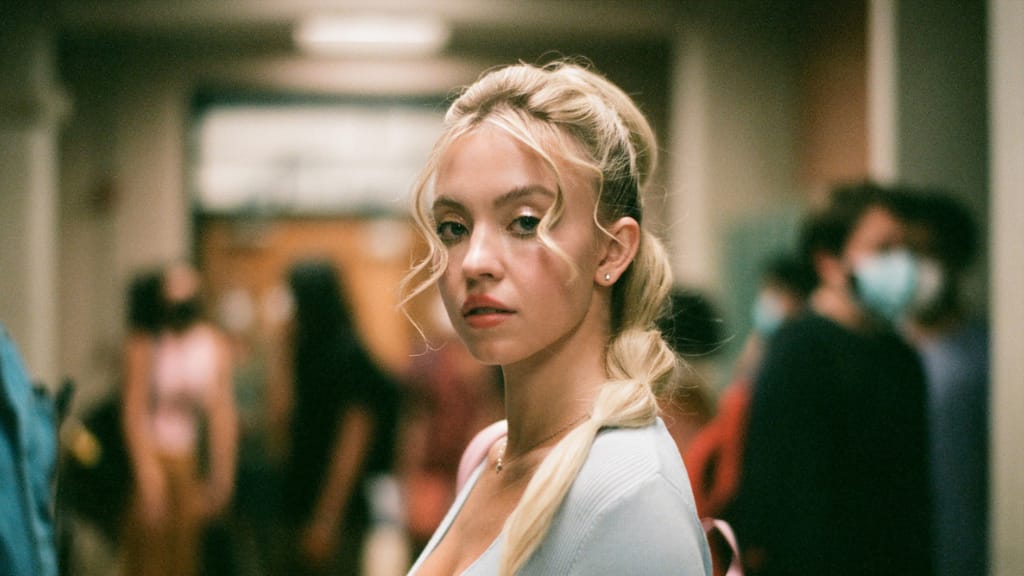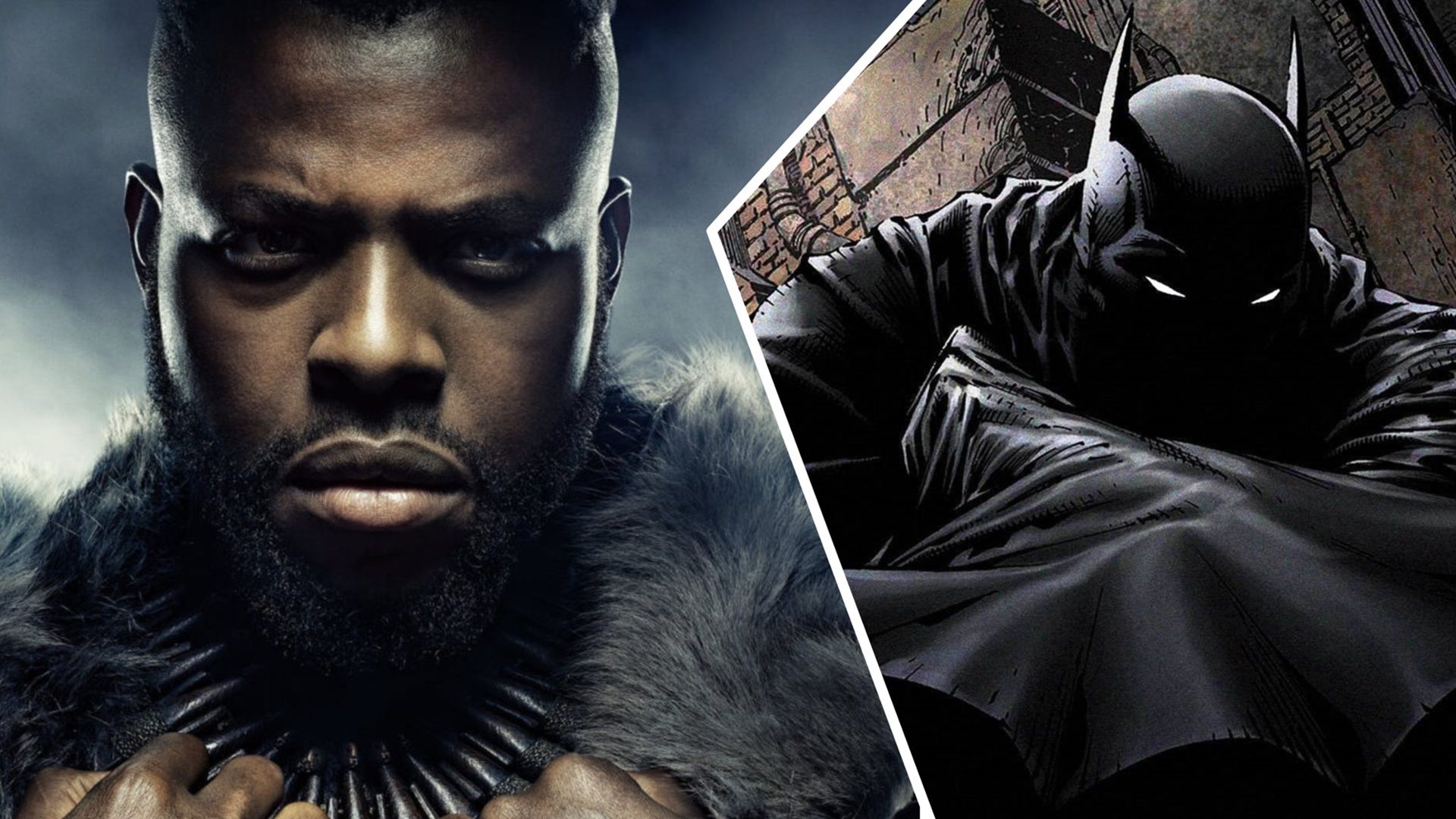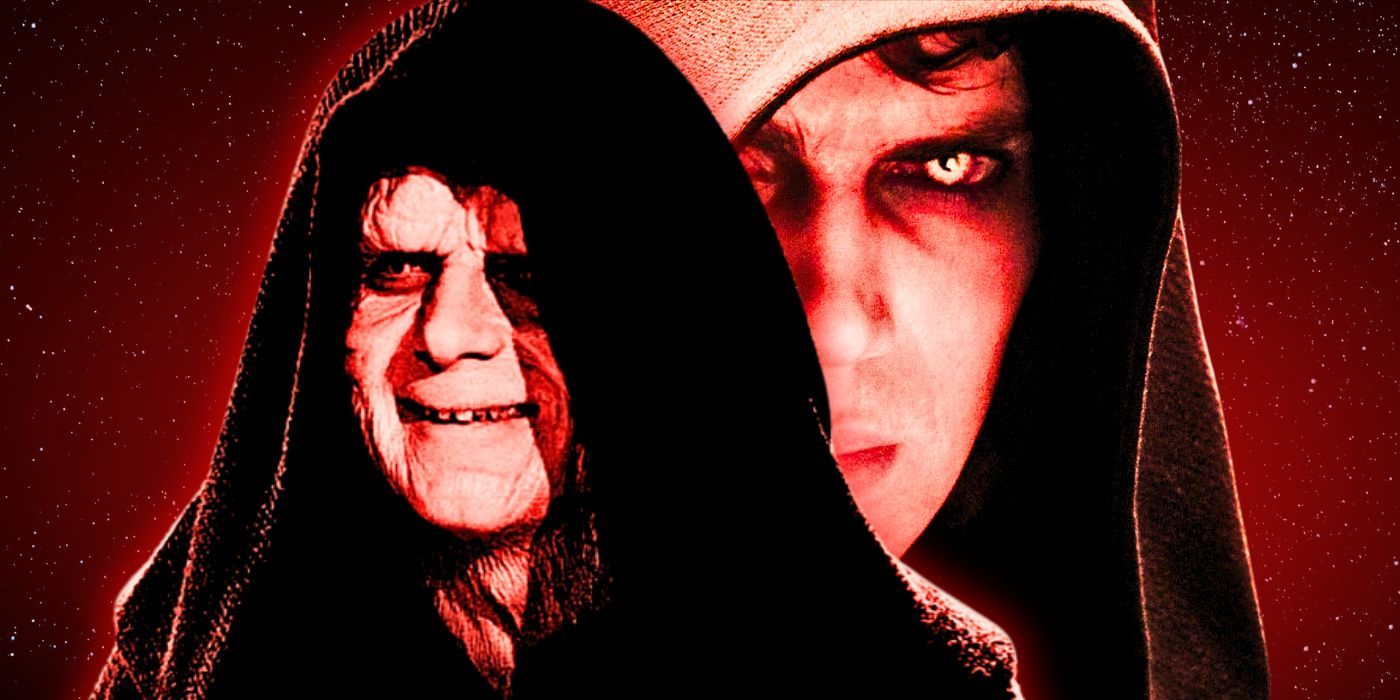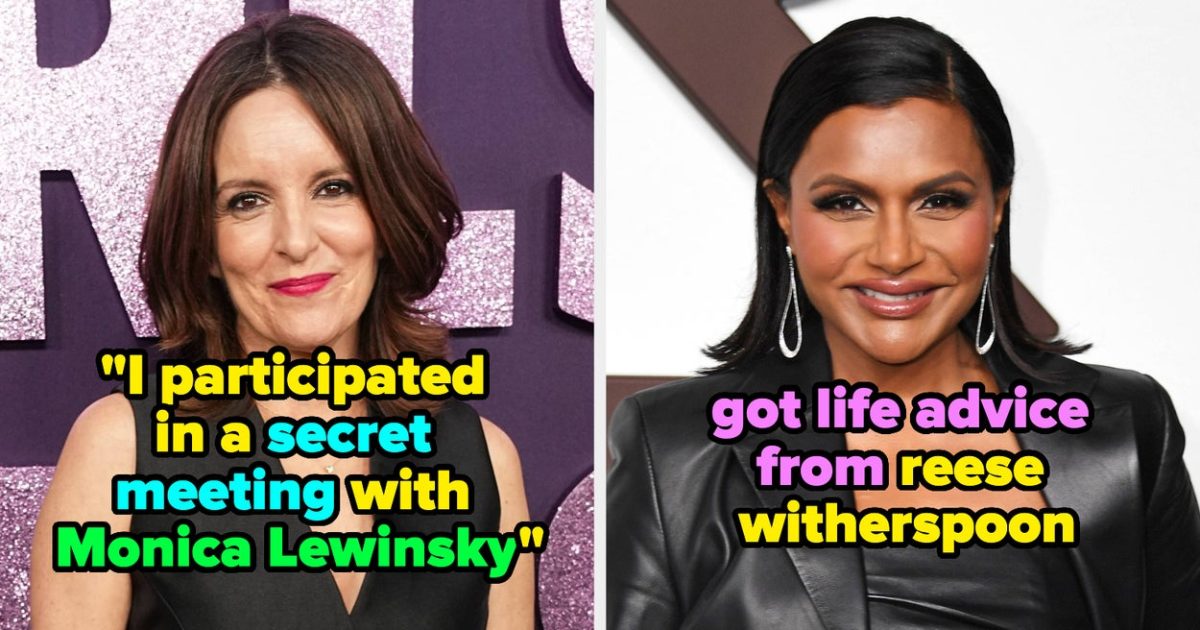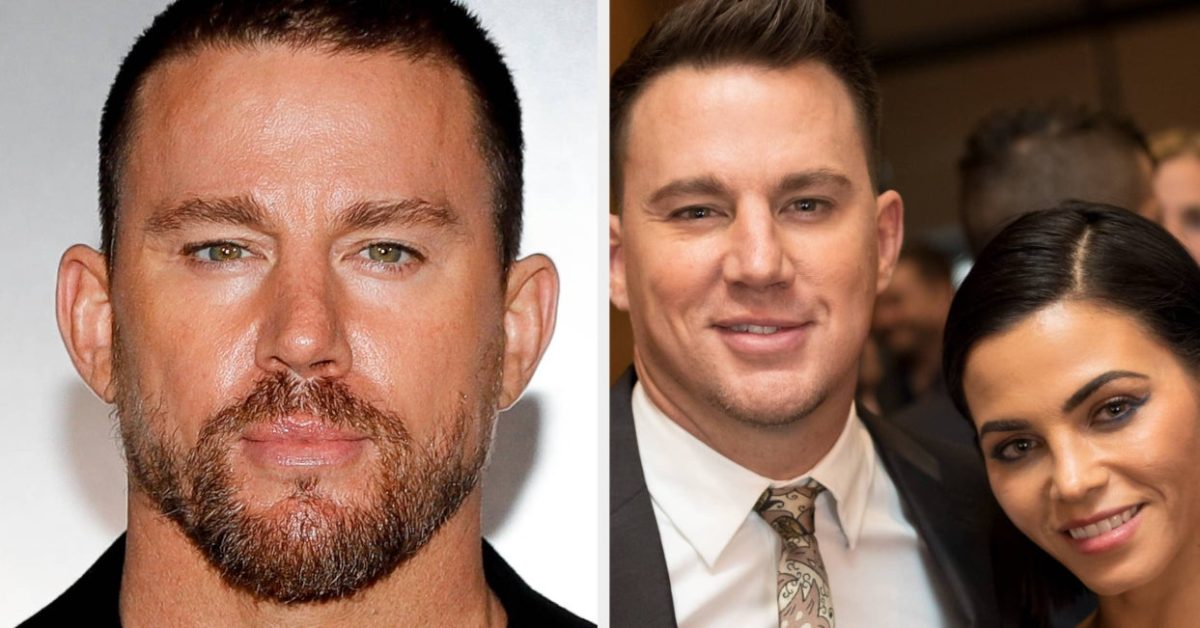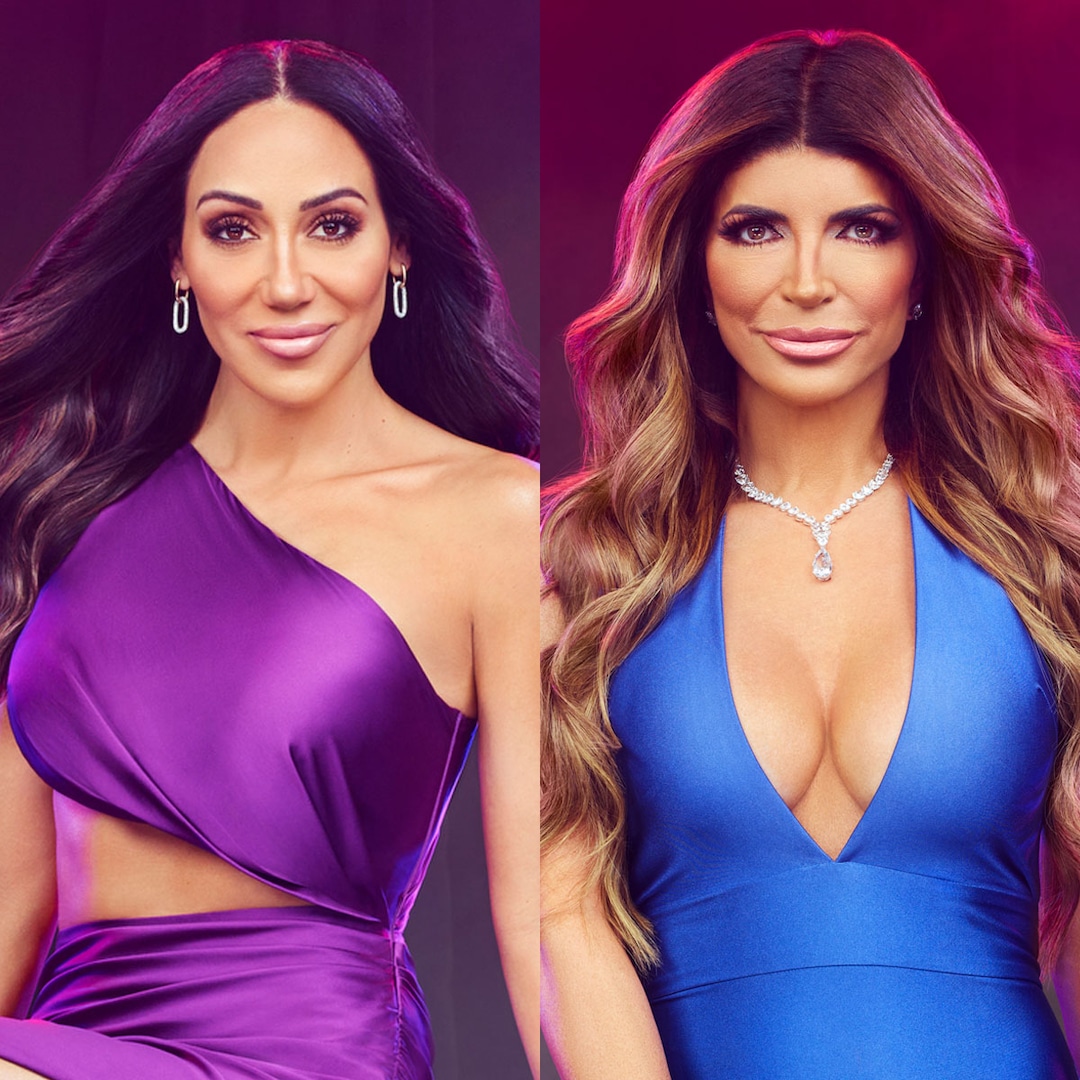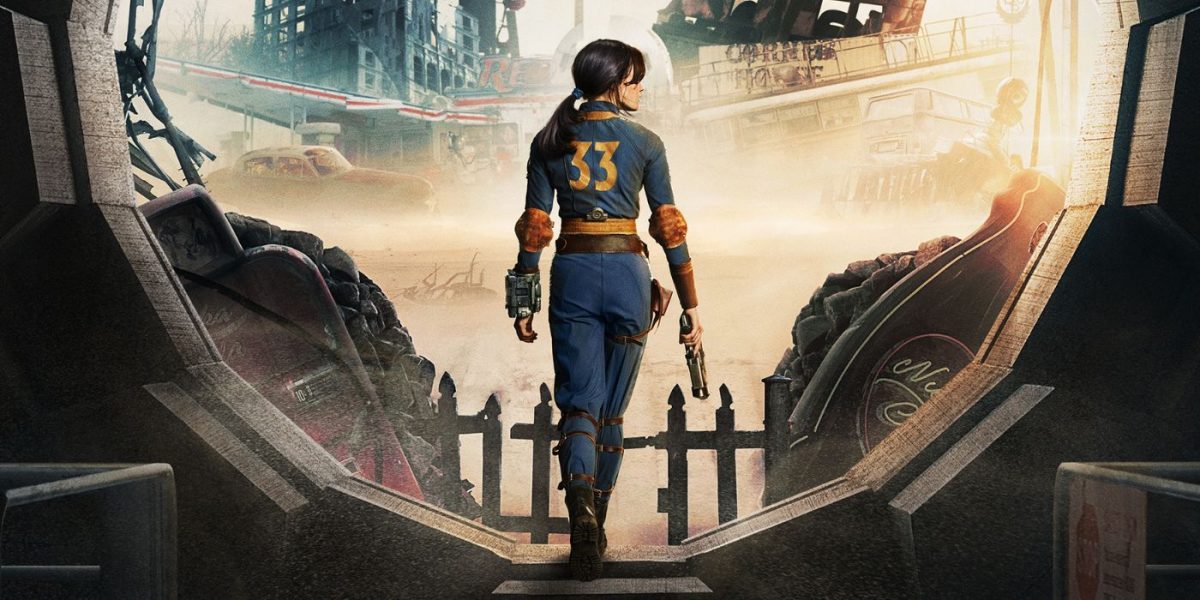
‘Fallout’ Series Will Be an Entirely New Story Within the Franchise
Dec 9, 2023
The Big Picture
Fallout Prime Video series explores an original story within the Fallout universe, following Vault Dweller Lucy as she ventures into a post-apocalyptic world. The show’s creators have considered the potential for multiple seasons, aiming to deliver a terrific first season and continue the larger story if successful. Jonathan Nolan worked closely with Fallout director Todd Howard to create an adaptation that fits seamlessly into the established Fallout universe and captures its tone and world.
After this year’s CCXP, Fallout fans have a lot to get excited about before the Prime Video series opens the vault next year. But before the panel pulled back the curtain on what’s sure to be on the coolest series of 2024, Collider’s Steve Weintraub was able to participate in a group interview with Fallout executive producer and director of the first three episodes, Jonathan Nolan, and two of the show’s leads, Yellowjacket’s Ella Purnell and Aaron Moten (Emancipation), to answer questions about everything fans can expect in the seriers.
Based on the video game franchise from 1997, the show will explore “an original story within the Fallout universe,” that sees Purnell’s character Lucy, a Vault Dweller, leaving the only environment she’s ever known to venture into a post-apocalyptic world Prime describes as “incredibly complex, gleefully weird and highly violent.” The eight-episode series will bring the acclaimed video game to life through the eyes of three main leads with Lucy, Moten’s Brotherhood of Steel member Maximus, and a 200-year-old Ghoul, played by Walton Goggins (Justified). Fallout also stars Kyle MacLachlan, Moisés Arias, Xelia Mendes-Jones, and more.
The interview covered who Purnell and Moten’s characters are within this new story, how Nolan worked alongside Bethesda director, Todd Howard, to develop a multi-season arc and how much creative control Howard afforded the crew. You can check out the full conversation below to find out what to expect from Vault 33, what it was like filming on location to capture the Wasteland, how the show became relevant after writing it, and nailing the tricky balance between comedy and drama.
Fallout In a future, post-apocalyptic Los Angeles brought about by nuclear decimation, citizens must live in underground bunkers to protect themselves from radiation, mutants and bandits. Release Date April 12, 2024 Main Genre Sci-Fi Seasons 1
QUESTION: With something like this, Prime Video is obviously looking for something that’s gonna last. How much when you guys were developing this and writing and putting it all together were you thinking about, “What’s our three-year plan? What’s our five-year plan if we get to do this?” And how much are you thinking about it season by season?
JONATHAN NOLAN: I think you have to be careful not to get the cart before the horse, right? Our main goal is to deliver one terrific season of television, but I think there’s a conversation. That conversation with Todd [Howard] from the beginning was about telling an original story within the Fallout universe, which seemed like a unique possibility given the way that the games work. But also the question of how that larger story would play season to season was something that we started a conversation with Graham [Wagner] and Geneva [Robertson-Dworet] early about.
I think the way that TV has evolved is a little closer to where I started, with franchise filmmaking, where if you do well there’s an opportunity you get to go again. We did well with Batman Begins, we got to make The Dark Knight, and we had a loose plan for how those things would work. I think we approached it from a similar perspective. The goal is to make one terrific season of television, and in success have a larger story to tell. What Geneva and Graham have cooked up is very, very exciting, so we’re excited to continue telling this story if we’re so lucky.
Related ‘Fallout’ Series Featurette: Franchise Creators Share Their Excitement For Adapting the Video Game Filming is currently underway with stars Walton Goggins and Ella Purnell.
Working With the Creator of ‘Fallout’
So, Todd Howard was the director from Fallout 3 and 4. Is he letting you guys work in peace? Because Fallout is his little baby. What is his contribution to the series?
NOLAN: Well, it’s almost impossible to quantify, given the scope, scale and ambition of the games that he created. About half of my career has been adaptation and half of it has been original work, and there are some properties that you can adapt that lend themselves to what I call a rigorous adaptation. I was never interested in that. One of the exciting things to us about the Batman universe is that there have been so many stories told in that universe that there is no canon, not really. I mean, it would be impossible to pin it down. There are certain Hallmark events, but there’s no one story you could point to and say, “That’s Batman.” And it’s an understanding that so many different artists worked on it that it would be a fool’s errand to try to do the rigorous interpretation. As a writer and as a filmmaker, that gives you room to create.
So what was exciting about the very first conversation that I had with Todd, we sat down for lunch, he liked my work, I liked his, and he had spent years kind of rebuffing offers to adapt these games, waiting to try to find someone who sort of got it. I had the good fortune of having played. In my life before, when I didn’t work in television and when I didn’t have children, I played games pretty often, and Fallout 3 is a game that I had played. There’s no completion of that game, but I played it for hours and hours and hours, and was very taken with the tone of it and the world of it. So when we sat down, it was sort of this love connection of, “I’ve always wanted to meet you,” and vice versa. In truth, my favorite collaborators to adapt from are dead people because they don’t argue. Todd is very much alive, but had that great, great confidence of someone who has created a world, [and] allowed in some cases – New Vegas is an example – other people to sort of create within that world. So he had both the confidence and the experience of knowing that if you build a good enough world people can create within it and connect to the stories that you’ve told.
So, we knew from the beginning that we wanted to tell an original story within the Fallout universe. And because of the way the games work, where each game is a different city with a different set of characters, with a different set of deeper questions it wants to ask and different ways of playing with time, and all the delicious speculative fiction, the bits and pieces that go into each of these stories, that if we did it right, we’d fit right in. And I think that’s where we’ve landed. It feels like another entry in the series, in hopefully the best way.
Who Are Lucy and Maximus in ‘Fallout’?
Image via Prime Video
Lucy seems to me like an optimistic character. She’s outgoing, she’s happy, she’s innocent. Is this impression right, and if so, what can you tell me about this character in the post-apocalyptic world?
ELLA PURNELL: Yeah, I think that impression is accurate. I think that she reflects the vault’s ideals. That’s where she grew up. She’s known nothing other than living in a vault under the surface. She is very optimistic and positive. Don’t get me wrong, she’s got grit and she’s courageous and she works hard, but she is definitely very optimistic, very naive, innocent, all of those things that you said. The journey for me when playing Lucy was about how much that changes when she comes up to the surface and interacts with the characters and experiences the chaos that is the Wasteland.
You guys are both survivors but really kind of different survivors. Can you tell me how you managed to surive and evolve during the show?
AARON MOTEN: There’s some similarities, too. I think Maximus, as well, has involved himself in a unit. It’s a military unit, the Brotherhood of Steel, but I think he just gravitated towards feeling more powerful amongst the group as opposed to on his own. I think it’s a real challenge for him as a character to feel like he is all that he should be when it is just him on his own. But I think that vault life has to be somewhat similar to that in that you are a unit continuing to keep a vault running, as well as training for the ultimate mission to come up to the surface and save the world.
PURNELL: I think for Lucy, she’s lived a very sheltered life, literally, and she really has wanted for nothing. She’s never really faced anywhere near the kind of challenges that Maximus or The Ghoul have. Her survivor identity, I think, is created by her willingness and her ability to adapt when she gets to the surface. The show and the game is all about choices. It’s all about, “That’s how you evolve,” and I think Lucy is faced with so many of those so early on, of like, is she gonna stay in the vault or is she gonna leave the vault? That’s the first big choice. I think her being a survivor is actually something that is formed throughout the season rather than maybe what the audience sees when they first see her.
COVID was like the closest thing we have had to a post-apocalyptic world, right? So how did this work for your series?
MOTEN: It adds to relevancy. What would you say?
NOLAN: So, I had the first conversation with Todd in 2019. COVID began the next year, and we were excited – excited is a strong word, but with writers there’s always a point, no matter how negative an experience is, where you’re like, “I can sell this,” and you kind of had that feeling in the midst of it. At the very least, it sort of makes the question of underground living a little more relevant, a little more tangible for the audience, maybe. Whereas, this is sort of a fantastical narrative set up, by the time you’re two months into the “essential” versus “inessential” America, the two Americans, it’s a little more relevant. Then the next year, when Russia invaded Ukraine, I was like, “Alright, enough with the fucking relevant story. We don’t need the resurgent nuclear threat. We’re good with that.”
But I do think it was a good reminder, a terrible reminder, but one nonetheless, of the fundamentally unfair ways in which the way history kind of pushes on different groups of people, the way that history pits different groups of people against each other. I think it’s one of the things that the games, and hopefully the series, one of the questions that we get to get deeply into, is why are humans so tribal, so fractious? Why do we find it so difficult to come together and rise above these things? We do sometimes, but not often. And, as the games posit, and one of the things that we were most excited about versus these other sort of bleak nihilistic takes on the end of the world where there’s nothing left, one of the things that Ella’s character gets to experience when she comes to the surface is expecting the world to be empty, and the world is very full and very rich, but it’s still filled with division, tribalism. It’s like even if you destroyed humanity, there’s enough of us left to kind of keep those divisions going. You’re squabbling now over nothing. So, it’s one of the richer questions that we get to play with.
The Everyday Challenges of Filming a Post-Apocalyptic Series
I’m curious, for the three of you, you see the shooting schedule, you know what’s in front of you, what is the day you have circled in terms of, “I cannot wait to film this,” or, “Oh my god, I can’t believe I have to film this?”
PURNELL: I think for me, one of the hardest parts was actually the physical side of it. I’d never done anything with stunts or fighting or any of the things we get to do on this, and I was really nervous. So, I think that the first day that I had a proper fight sequence or proper stunts, I was super nervous. I had no idea if all my training…
NOLAN: Was that also on the same day there was a love scene and a fight scene?
PURNELL: Yeah, and it was also, like, the third day of shooting. They threw me in the deep end. But it went great, and then I discovered that I loved it.
MOTEN: What’s weird is, I think, as an actor, it’s often so much the case that you’re preparing for a scene where you sit and have coffee and talk to somebody, and it’s just so much more exciting to have a scene where you jump off a high elevation and need to start scrounging for ammunition. There’s so much excitement to what you get to do in a normal day on the Fallout set compared to what I am used to, generally speaking as an actor. “Oh, you want me to lift my cup on what line?” It really comes down to certain things like that, and it’s just so fun, it’s so exciting to work on a show that has so much richness of experience.
PURNELL: You’ve ruined all other jobs for us.
I’m curious what you’re going to say.
NOLAN: Well, I was definitely nervous about the day that Ella is talking about because you’ll see in the first episode there’s a dramatic tone shift in one particular scene, which meant that we wound up shooting difficult material as a director, especially as a recovering English director, to shoot for different reasons with a lot of physicality. That’s all that I’ll say. That was nervous-making, but it went great. No matter how big the show is, the way that we work the schedule is always ambitious. There’s always ten pounds of shit in a five-pound bag every day. We have the great luck of working with an incredibly talented cast who are kind of up for it in terms of, “Let’s get ambitious with this.”
One of the things I was most looking forward to with this show, and it’s often the case, was the location photography. We have the tools that you could sort of make anywhere look like anywhere else. We have an incredibly talented visual effects team that we work with on this show, but I still don’t think there’s anything that quite replaces the experience of getting everyone on a plane and dragging them to the backend and beyond. And I think you feel that. Even with the most talented actors in the world, if you’re acting on a green screen stage, I think it’s very hard not to feel that on some level. So, we were able to shoot this location that we had found, a location called Elizabeth Bay on the Skeleton Coast of Namibia that we had found years ago researching different projects, and that I had sort of tucked away in my back pocket knowing that it might be useful somewhere down line. The second we started working on this project, I knew, “That’s where we’re going.”
By the time you get everyone down there, you always have this moment as a director where you kind of wake up the morning of the shoot, and you go, “Why did I drag everyone down here? Is it really worth it?” Then you get out there the first day, and we started looking out over the ruins of what required almost no visual effects enhancement to believe it was the ruins of Los Angeles, post-apocalyptic. It had just been served up to us by the Namibian coast. It’s impossible not to feel a little bit carried away, and it just makes everyone’s job a little bit easier.
Ella, I think your character and you had some traumas after Yellowjackets.
PURNELL: Traumas?
Yeah, so are you ready for more trauma? Because it’s a post-apocalyptic world with mutated animals and a lot of radiation.
PURNELL: That is so true. Honestly, I think every part I’ve ever played since 11 years old has ended with trauma. I don’t know why I like those kinds of roles. I just do.
NOLAN: You’re the problem. [Laughs]
PURNELL: Is it me, am I the drama? What’s funny, I think, is, obviously working on set, it’s always very stressful. There’s long days and a lot to do, but like Aaron said, we had so much fun. You’re just messing around and playing with severed limbs and dead animals, and then Jona’s like, “Action,” and you’re just crying into the camera. But it doesn’t feel heavy because we had the most amazing crew, and seriously, we were so close. We spent a lot of time together. The cast were all fantastic. So, it didn’t feel as heavy as it looks. I’m not traumatized, I promise.
What is Vault 33?
Image via Prime Video
We know because of the games that every vault has something unique and something special, and I wanna know if you guys can tell us little about what is special about Vault 33 without many spoilers?
NOLAN: That is a tricky one. But that is one of the things that we are so excited about with the game franchise is that every game is about a different city, a different group of characters, and a different vault. One of the larger kind of mythological elements of the games is that there is this company, Vault-Tec, behind all of this. It varies very nicely in the sort of digital age in which, you know these, with all due respect to our corporate patron, and maybe the least of it, but there’s always two modes to these businesses, right? There’s the ostensible business and then there’s the data-gathering operation that’s going on in the background. Vault-Tec very much fits into that category of a company that has an ostensible product, which is the end of the world and your survival, and then another product that’s maybe not apparent to you.
I think part of the fun of the season, as with the games, is coming to understand exactly what the purpose of this vault is. But we can say these vaults, because there are three vaults connected one to the other, have a distinct purpose which we’ll come to understand during the season, which hopefully,, from my perspective as a fan of the games, fits kind of deliciously into the larger world of the games.
Fallout, as we know, is a huge franchise. It has so many elements, the universe is so expansive, so I was wondering, what is the starting point? I can imagine you guys with your board. It’s like detectives putting things together. Where do you actually start to say, “Okay, this will go in, this will go out, and this will be the show?”
NOLAN: It started for us with the conversation with Todd, and then the challenge of hiring two fantastically talented writers to take on that narrative. So, Geneva, we long wanted to work with, and Geneva had long wanted to work with Graham. And Graham’s background in comedy and Geneva’s background in drama was kind of a perfect marriage. Then the conversation started with us in terms of, “Okay, we know the intention here is to tell an original story within the world.
Where do we want to set it, and what story do we want to tell?” It was a great deal of of fun.
We knew that one of the unique challenges was a video game is told, for the most part, and definitely with the Fallout series, from one character’s perspective, but that character could be anybody. I remember sitting down with my wife to play Fallout 4 at one point, and the first 30 minutes were spent just designing your character. It’s a very different mode of storytelling, the narrative fiction, than filmmaking. One of the things I was most excited about in those early conversations was that Geneva and Graham were excited about telling an ensemble story, and coming at it from these three perspectives was, to me, kind of a brilliant hack for how you present that roleplaying mechanic of the games, which is you can be anyone – that Vault Dweller can be anyone. They can look like anyone, and they can make any choices they want, which is not a luxury you can afford the audience when you’re telling them a linear story. So, having three perspectives, Ella’s character and Aaron’s character and Walton’s characters, occupy these very different corners of the Fallout universe, gave us a chance to encompass some of the ambition of the games, not just in terms of world-building, but in terms of morality and in terms of the gray area. We talked a lot about The Good, the Bad, and the Ugly, which is one of my very favorite films and a great touchstone for us as we sort of embarked on the journey.
Finding the Perfect Tone for ‘Fallout’
Image via Prime Video
What was your main challenge for you guys as an actor and as a creator?
MOTEN: I think the main challenge as an actor is to, in circumstances that I don’t know in my day-to-day life, still bring a natural, relatable human experience to those things. I guess we always talk about the text being clues to the experience. As soon as you read a script, anything can still happen on the day based on whatever is happening with our set, our crew, our location. Anything can happen, and you don’t know until you’re there, but that challenge always seems to be about how to be real based on what’s happening, how to give your actors something real to then take and create something because it starts one step at a time in that sort of way.
But I guess the challenge that comes with a project like this and the circumstances that we don’t see in our day-to-day lives is how do we continue to allow ourselves to take it step-by-step as actors, so that even if something is 20 feet high near us, it still is giving the camera this natural response to something that we don’t normally see, we don’t normally have to deal with. But it then gives us all something relatable as a viewer, something that feels like we got that experience from.
PURNELL: I’d already mentioned a little bit about the physical side and that being challenging, but it also turned into one of my favorite things. I think another thing was, I’ve done a lot of naturalistic things rooted in reality, and this is quite far removed from that in the sense that this is an experience – Lucy leaving the vault for the first time and experiencing the world for the first time. We had a lot of fun talking about, “What the hell would that feel like?” We talked about, “Would the ground feel different? Would the ground feel weird? Does she know what wind is? Is that gonna freak her out?” Just trying to get down to your, like, base, base, base baby human brain going, like, “Well, what is it that we take for granted that an alien would come down to Earth and go, ‘What is that?’” And I think we found some fun things. But that was definitely something I’ve never thought about before.
NOLAN: I think it was the tone. I think, for me, this is the closest I’ve come in my career to comedy. I would say the comedy is there in support of the drama, as we talked about. I think finding that tone on the set every day, guiding it towards what we wanted the finished product to look like, was definitely challenging. But it also meant working in a mode. We have been essentially on set, for my entire career, a wordperfect production, meaning that we can have conversations about the script before we show up to shoot, but when we show up to shoot, we’re shooting a script. Whereas here, there was an opportunity – and that’s how, for the most part we shot this – working in that slightly more gonzo moment that the games portray of having a chance to be a little more improvisational on setwork and having a chance to allow some of that humor to spill outside the balance of the script and play a little bit. Which I was very nervous about as a control freak because you sort of said, “Oh, this is what we’re doing. I studied the script, I know how to get all my shots,” and opening yourselves up to it creates these kinds of moments.
We had this wonderful moment with Graham and I on set in Namibia in the ruins of this old diamond mine shooting an actor named John Daly, who plays a snake oil salesman in the series. John was just kind of letting it rip. We have film cameras, so there’s a limit to how far you can go, but you kind of let it rip, and Graham turned to me, and he’s like, “I know what the series is. It’s Tchaikovsky with jokes.” And I was like, “Okay, perfect. Now I’m happy.”
The first season is eight episodes. Which of the eight episodes are you most looking forward to the audience seeing?
PURNELL: For me, it’s the finale. It’s [Episode] 8 of eight.
NOLAN: I’m a little offended, as I didn’t direct that.
PURNELL: But the plot twist, the script.
NOLAN: Yeah, there’s some fun stuff that happens.
MOTEN: Number one.
NOLAN: There you go. Good answer.
PURNELL: You’re such a suck up! Unbelievable.
NOLAN: I guess I know who’s in Season 2.
NOLAN: No, the whole damn thing, to Ella’s point. And this is one of the wonderful things about working in this is this sort of golden age of television where you get to tell one long story for eight hours. It all holds together. All the pieces kind of bolt together. It’s really the whole thing that’s the story. So, the finale has all these wonderful moments that connect to the things that we sort of set up in the first episode. They’re all our little babies. It’s a little hard to choose. But I do think that first episode, the sort of delirium of experiencing this world, I’m excited for the audience to find because I’m hoping to channel the experience for me of playing Fallout 3 for the very first time and just kind of having my head knocked back by how you could have all these different sort of feelings layered into one experience.
Will ‘Fallout’ Explore Other Countries Post-Apocalypse?
Image via Prime Video
What happened in the other countries that’s not too explored in the game. Will we have what happened in the rest of the world?
NOLAN: An early conversation with Todd was kind of about the ground rules as we began talking with Geneva and Graham about the kind of story we wanted to tell, and one of the ground rules was that the franchise views the apocalypse through the lens of America. That kind of speaks to the way that America sees itself, right? Nothing happens outside of America, right? Part of what the story is dealing with is that slightly rancid American exceptionalism that laces itself through the narrative. That’s why the story kind of has to be in America because it is America interrogating itself about, “Does it deserve to survive the end of the world, and what does it become after that?”
We’ve had great fun telling stories all around the world, but I think there is something distinctly American about the franchise and the questions it asks. So, that was sort of a relief when you’re going to adapt. You want some freedom, but you also want some constraints. I had an early conversation with Todd about, “Pick a city in America.” I hope to see, at some point, the franchise in gaming terms kind of grow beyond that because I think there’s so many fun questions to ask about exactly how these things would play out, but I understood and respected the thematic reasons why we were given a bit of a mandate to stay in the United States.
Fallout premieres on Prime Video on April 12, 2024.
Watch on Prime Video
Publisher: Source link
14 Famous People Name-Drop Celebs In Memoirs
14 Famous People Name-Drop Celebs In Memoirs 1. In her memoir, Rebel Rising, Rebel Wilson shared that she thinks Adele actually hates her. “Some actresses would get offended if I called them plus-size in this book, so I have to…
May 4, 2024
Nordstrom Rack is Heating Up With Swimsuit Deals Starting At $14
We independently selected these deals and products because we love them, and we think you might like them at these prices. E! has affiliate relationships, so we may get a commission if you purchase something through our links. Items are…
May 4, 2024
Channing Tatum Not Happy About Jenna Dewan Legal Battle
Channing Tatum Not Happy About Jenna Dewan Legal Battle Back in 2019, Channing and Jenna were declared legally single after separating the previous year. They were married for a decade and share one child, Everly, who was born in 2013.…
May 3, 2024
How RHONJ’s Melissa Feels About Keeping Distance From Teresa
Though the new season hasn't even debuted, Melissa indicated she's already excited about the reunion. "There's so much that needs to come out, and that's the place to do it," she said. "I mean, there's so many rumors and things…
May 3, 2024
